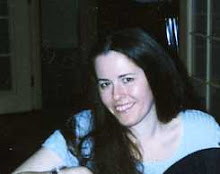Plot Summary - "The faster we're carried, the less time we have to spare." - -Directed by Orson Welles, this is the story of a deteriorating family set amidst the coming of the automobile and the new faster-paced world that goes with it. The film begins in 1873 and moves forward to the turn of the last century, showing the saga of the prominent Amberson family - - the Ambersons are rich, snobby, and live in the finest house in town, the Amberson mansion. Attractive Amberson daughter Isabel rejects her beau, Eugene Morgan (Joseph Cotten), because of a silly incident that happens when he is serenading her while tipsy. Though Isabel and Eugene are in love, she for some odd reason decides to marry one big bore, Wilber Minafer. Wilber and Isabel soon have an extremely spoiled, bratty young son, George, dressed up like "Little Lord Fauntleroy" and known by the town gossips as a "princely terror" who many hope to see get his comeuppance one day. George (Tim Holt) grows up and the Ambersons give a ball - "the last of the long-remembered dances that everybody talked about". Attendee Eugene Morgan, inventor of a "horseless carriage" and a widower back in town after years away, brings his beautiful daughter Lucy (Anne Baxter) who catches George's eye (and every other young man's eye) big time. George pursues Lucy - he's rather arrogant but she seems to like him anyway, Isabel and Eugene are still in love, and Wilber's sister, a spinster named "Aunt Fanny", moons around after Eugene, her long-time secret fancy. The Amberson mansion is soon full of high melodrama, especially after the death of Wilber leaves it now open for Isabel and Eugene to re-spark that old flame together. But son George stands in the way, worried about his family's reputation. And the family comes to their downfall as they lose their wealth and home.
Review - This film is somewhat dark and somber, particularly as the film progresses, but it is superbly put together. The cinematography is done in an unusual style - many dark scenes with natural lighting leaving the rooms often very shadowy, deep focus photography, and lots of scenes done in one take with no cuts, showcasing conversations between several people in different spots in the room, tracking shots following characters as they walk. My favorite scenes - the opening montage of changing fashions and the slow-paced lifestyle of the 1800s, with a wonderful voice-over narration done by Orson Welles: as he relates, "in those days they had time for everything", sleigh rides, cotillions, all-day picnics in the woods, serenades, etc. Another scene I love - a wintry ride for the whole clan in one of Eugene's horseless carriages, everyone laughing and singing and chatting all at once, having a great old time riding in this newfangled invention. Also: the last great ball scene, full of one-take tracking shots following characters walking towards the camera or dancing away from the camera. The acting quality is expertly done by all. Yes, Agnes Moorehead gives a stellar and memorable performance as "poor Aunt Fanny", but Tim Holt is great too - the relationship between Aunt and nephew seems so real. All the characters, actually, come across as a real, somewhat dysfunctional, family - bickering, talking over each other, but having fun sometimes too. I love Joseph Cotten, he's one of my favorites - he's wonderful here too. There is much more that can be said about this "magnificent" film, but I will leave it at just this for now. I have always enjoyed this film more than Welle's "Citizen Kane", I might add. Rating - 10/10 stars
Wednesday, October 22, 2008
The Magnificent Ambersons (1942) Film Review
Subscribe to:
Post Comments (Atom)


No comments:
Post a Comment